Otoxha Village Gains Improved Water System
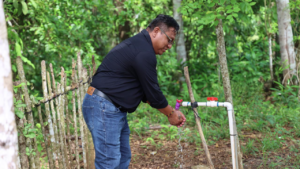 Starting today, patients in Otoxha Village, Toledo District, will no longer face unsanitary conditions at their health post, thanks to a significant upgrade. The Ministry of Rural Transformation, in collaboration with the Republic of Korea and UNICEF through their Water, Sanitation, and Hygiene program, has tackled the pressing issue of poor sanitation caused by the village’s limited water supply. This initiative marks a new era of improved healthcare and hygiene for the community. Here’s News Five’s Britney Gordon with the story.
Starting today, patients in Otoxha Village, Toledo District, will no longer face unsanitary conditions at their health post, thanks to a significant upgrade. The Ministry of Rural Transformation, in collaboration with the Republic of Korea and UNICEF through their Water, Sanitation, and Hygiene program, has tackled the pressing issue of poor sanitation caused by the village’s limited water supply. This initiative marks a new era of improved healthcare and hygiene for the community. Here’s News Five’s Britney Gordon with the story.
Britney Gordon, Reporting
Sanitation is vital in delivering safe and effective healthcare. Without access to clean water, patients face the risk of painful and potentially life-threatening infections. This has been a longstanding challenge for the residents and healthcare providers of Otoxha Village in the Toledo District.
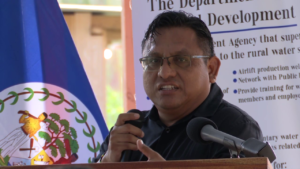
Valentino Shal
Valentino Shal, CEO, Ministry of Rural Transformation,
“Before soap and water. People used to die in hospitals and then the doctors didn’t know why. But somebody thought you know what, it is bacteria and germs that is killing our patients. And then they started to wash their hands. And they started to save people’s lives by using soap and water. Now we had that same problem in Otoxha. The maternal child health care personnel would come, the doctors would come, but then they can’t wash their hands because there’s no water.”
Nestled on the southwestern border of Toledo District, the remote village has long struggled with unstable access to water and electricity. However, thanks to the efforts of the Ministry of Rural Transformation, the village’s health post has now been revitalized. Dr. Jorge Salia, Deputy Regional Health Manager at the Ministry of Health, highlights how this new system is revolutionizing healthcare services in the community, bringing much-needed stability and hope.
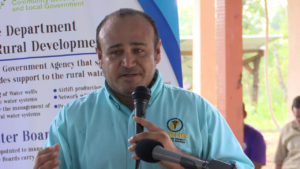
Jorge Sajia
Dr. Jorge Sajia, Deputy Regional Health Manager, Punta Gorda Hospital, MOHW
“When we first visited Otoxha, there was a partial water system that wasn’t functional properly. We had a health post that was in very bad shape. So how as a health personnel would we come and offer health services when we don’t have the basic needs? If we will go see a patient, most doctors need to wash their hands before and after. When the nurses come to vaccinate, we need water to wash hands. Through UNICEF, the Ministry of Rural Transformation came true with all of us working together along with the community. Now we have present our health team from the entire district coming to offer the very first health services.”
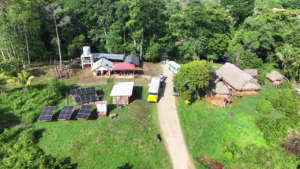 The ministry installed a ten-thousand-liter water storage tank and upgraded a nearby well with a solar-powered, submersible pump. A new waiting room was constructed for patients, fitted with solar lights for nighttime medical care.
The ministry installed a ten-thousand-liter water storage tank and upgraded a nearby well with a solar-powered, submersible pump. A new waiting room was constructed for patients, fitted with solar lights for nighttime medical care.
Dr. Jorge Sajia
“We know that San Teresa, Santa Ana has been having a little bit of difficulties. So that’s the reason why we make these health fairs to come to you guys with the work of the, of UNICEF and rural development. That package is now complete. We have a waiting area, no comfortable waiting area. We have water system right at the foot of the clinics where we could wash our hands. We saw during COVID, all of our numbers for conjunctivitis, gastrointestinal diarrheas went down. Why? Because the basic thing we did was wash our hands. How could we bring that to Otoxha if we didn’t have a good source of clean water. So thank you everyone for making this possible. The health team is compromising to offering more health services to the district of the Toledo district. We will be coming again to Otoxha.”
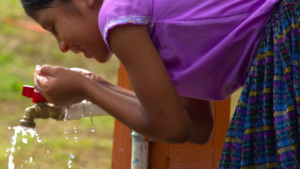 Residents can now access clean water through a standing pipe conveniently located near the newly built waiting area. The villagers have long emphasized that the lack of accessible healthcare is one of their major concerns. Toledo East Area Representative, Dr. Osmond Martinez, shared how he collaborated with Dr. Sajia to devise a solution to this pressing issue, bringing much-needed relief to the community.
Residents can now access clean water through a standing pipe conveniently located near the newly built waiting area. The villagers have long emphasized that the lack of accessible healthcare is one of their major concerns. Toledo East Area Representative, Dr. Osmond Martinez, shared how he collaborated with Dr. Sajia to devise a solution to this pressing issue, bringing much-needed relief to the community.
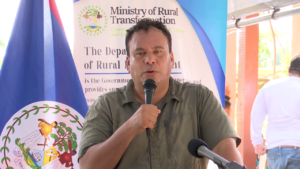
Osmond Martinez
Dr. Osmond Martinez, Area Representative, Toledo East
“And one of the challenges that he has in the Punta Hospital is to get the experts Like presently, I think you have six posts fpr medical doctors. Who we will be happy to, to um, fill those posts and get the doctors to start to work as soon as possible. The problem is that, where do we get them? And so today I want to encourage you all as well, you know. Make up your mind, study, and become medical doctors. We need some, we need some technicians for x-rays, ultrasound, and what else you need? And lab technicians. So you have an opportunity, turn this Constrained into an opportunity for the community.”
The project was made possible with support from the Republic of Korea and UNICEF. Minister of Rural Transformation, Oscar Requena explained that the ministry is determined to acquire funding for future projects in rural communities.
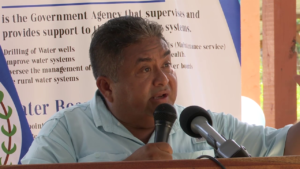
Oscar Requena
Oscar Requena, Minister of Rural Transformation
“Thank you, UNICEF and our partners for ensuring that we can have good, clean, sanitary facilities for our community. The next big thing, water system. We are getting a new rig very soon. In the next month and a half, we are going to have a new rig in Belize costing the government three million. That’s what we purchased through our ministry. 3 million. So that we can come and we can drill for water. Because all rigs that we have, you know, I don’t know if you know, but they are twenty-four years old. Very old, breaking up. And that is why we made the effort to ensure that we find the funding.”
Britney Gordon for News Five.





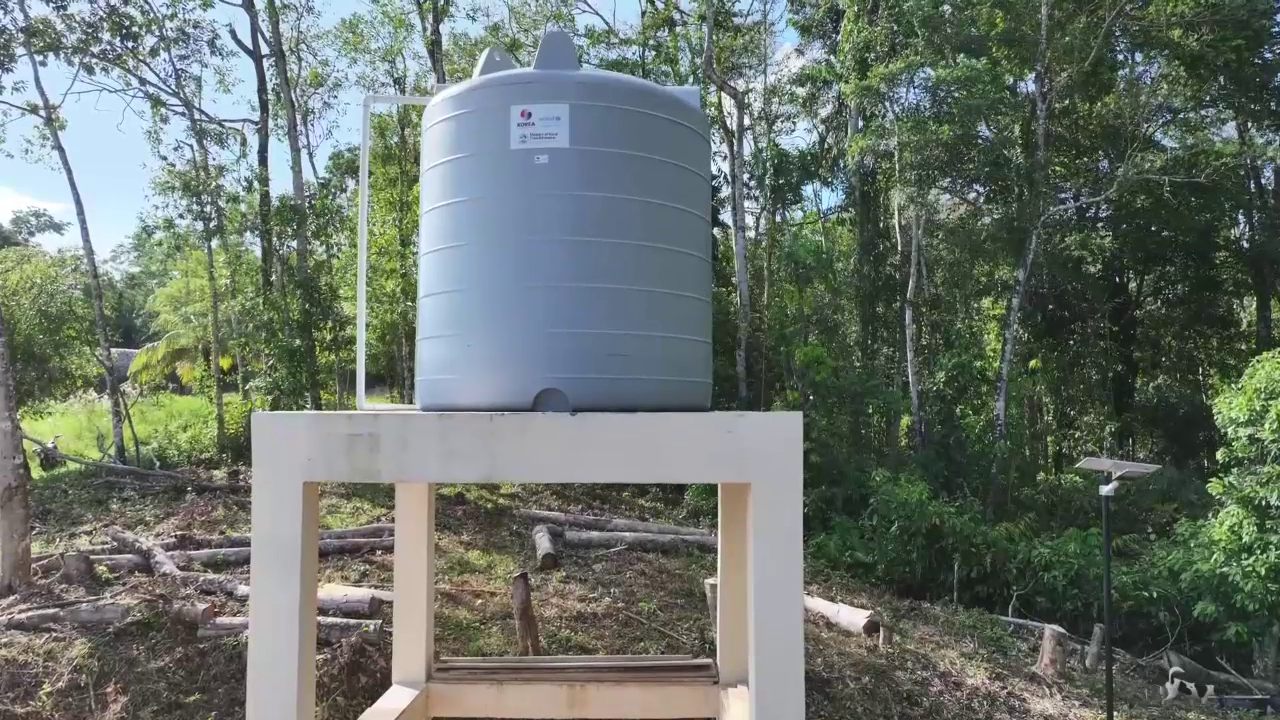
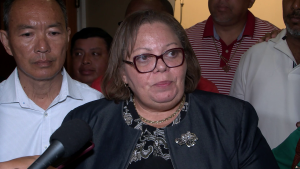
Facebook Comments